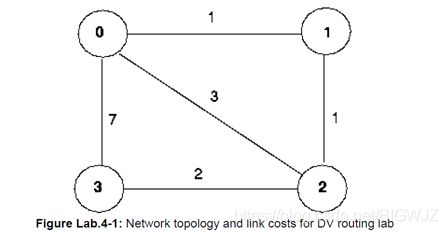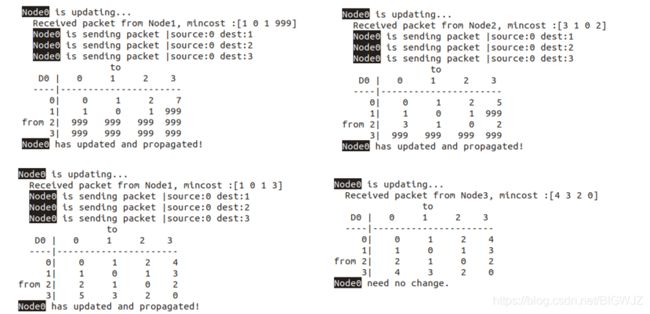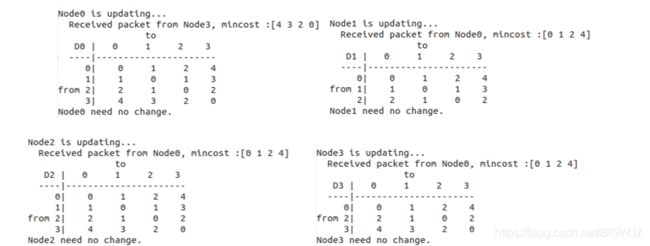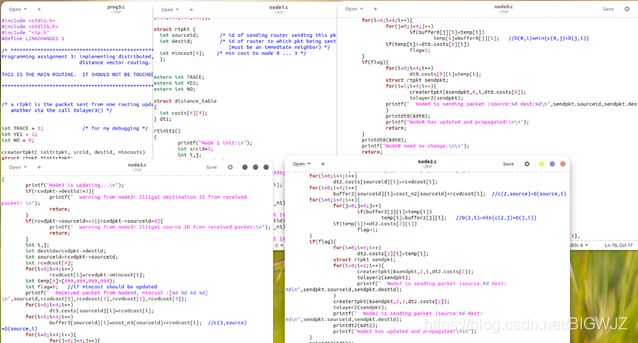【计算机网络:自顶向下方法】基于DV算法的RIP路由协议
RIP路由协议编程实验
The LAB was a homework, it seems not easy for ordinary junior students. Since I took the Computer Networking as an elective course, I had no choice but to devote my time on the difficault coding. QAQ…
I didn’t complete the advanced assignments. T_T…
Overview
In this lab, you will be writing a “distributed” set of procedures that implement a distributed asynchronous distance vector routing for the network shown in Figure Lab.4-1.

Assignment
You are to write the procedures rtinit0(), rtinit1(), rtinit2(), rtinit3() and rtupdate0(), rtupdate1(), rtupdate2(), rtupdate3() which together will implement a distributed, asynchronous computation of the distance tables for the topology and costs shown in Figure 1. You should put your procedures for nodes 0 through 3 in files called node0.c, … node3.c. You are NOT allowed to declare any global variables that are visible outside of a given C file. For your sample output, your procedures should print out a message whenever your rtinit0(), rtinit1(), rtinit2(), rtinit3() or rtupdate0(), rtupdate1(), rtupdate2(), rtupdate3() procedures are called, giving the time (available via my global variable clocktime). For rtupdate0(), rtupdate1(), rtupdate2(), rtupdate3() you should print the identity of the sender of the routing packet that is being passed to your routine, whether or not the distance table is updated, the contents of the distance table (you can use my pretty-print routines), and a description of any messages sent to neighboring nodes as a result of any distance table updates.
Code
I completed the codes based on the given document. There are five C files which realize the function of RIP.
1.prog.c
#include - node0.c
#include - node1.c
#include - node2.c
- node3.c




